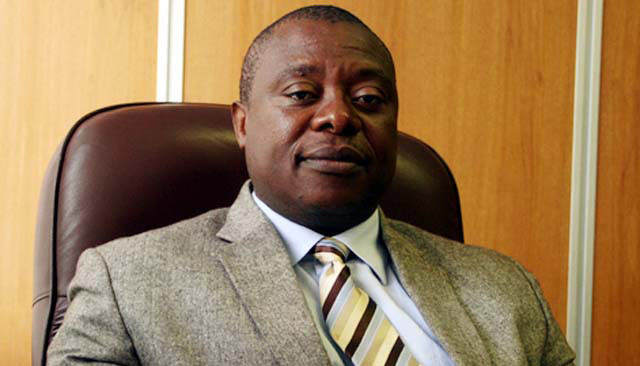
The Sunday Mail

Tendai Chara
IN one of the most puzzling and bizarre cases, a gang of Harare street kids in 2003 came across a bag containing what they thought was meat in the Avenues area. Upon opening the bag, they were horrified to discover that what was going to be part of their meal that day was actually the decomposing remains of a human torso.
Barely some few hours later, another bag containing a human chest cavity, liver and part of the groin was discovered at a flat at the corner of Sixth Street and Baines Avenue. As if that was not horrifying enough, some residents who were strolling in Greenwood Park bumped into human body parts.
For yet unknown reasons, whoever was behind the body parts even had the guts to dump a human leg at the doorstep of the nearby police headquarters. Baffled police investigators could not at that time get any concrete Deoxyribonucleic Acid (DNA) tests to determine whether the chilling discoveries were in any way related.
Furthermore, the police could not establish the identities and motive behind the gruesome discoveries. Panic and fear naturally set in as residents bandied around theories on the motive of the killings and identity of the deceased.
Was a serial killer on the prowl?
Were these ritual murders or was the discovery associated with the rampant drug dealing in the area? These were some of the questions that the residents of this crime-prone area were asking themselves following the incident. Sadly, for them, answers to these and numerous other questions never came.
Fast forward to 2020.
The recent murder of seven-year-old Tapiwa Makore of Murehwa for ritual purposes has not only shocked the nation but has also left behind several unanswered questions. Apart from Tapiwa’s body parts, a fire-singed child’s palm, a jaw with seven lower teeth, one skull and other body pieces were discovered at the crime scene.
As was the case with the Avenues discoveries, panic, fear and a lot of unanswered questions still haunt the Murehwa community and the country at large. Basing on the discoveries, whoever was behind the killings might have probably committed multiple murders, possibly for ritual purposes. There are genuine fears that the findings in Murehwa might end up being another cold case.
The two unsolved cases, coupled with several others that are not often highlighted in the media, have once again raised questions regarding the country’s capability to solve complicated criminal cases that require forensic pathologists.
Commonly referred to as “death detectives”, forensic pathologists are scientists who assist the police and coroners by examining the body in cases where homicide is suspected. Forensic pathologists assist investigative agencies to identify recovered human remains. They can be asked to assist in determining age and race, among other things. Brian Kashangura, a crime and security expert, reckons the country’s capability to solve complicated criminal investigations using criminal forensics can be improved.
“Criminal cases are going cold due to a lack of trained forensic pathologists. There is need for the capacitation of the Police Forensic Science Laboratory and the training of more forensic pathologists,” Kashangura, a former head of the Criminal Investigations Department (CID) and Homicide Division in Mutare said. The Sunday Mail Society understands that the country relies on one Forensic Document Examiner, a situation that is forcing some to outsource services from South Africa.
Crime and security experts argue that outsourcing such services is not advisable.
Forensic dentistry, which can be used to solve complex criminal investigations using dental evidence, is not widely practiced in this country. Forensic dentistry also involves the proper handling, examination and evaluation of dental evidence, which will be presented in the interest of justice. The evidence that may be derived from teeth is the age and identity of the victim. Dr Farayi Moyana, a dental practitioner, said there is an acute shortage of forensic dentists.“As far as I know, Zimbabwe does not have a qualified forensic dentist. The only qualified forensic dentist that we had has since relocated to the United Kingdom,” he said. The use of DNA to solve complicated criminal cases is also being hampered by the lack of institutions that offer such services.
However, Zimbabwe Republic Police (ZRP) spokesperson Assistant Commissioner Paul Nyathi said their forensic laboratory has adequate equipment for intended use.
“Our forensic laboratory is functional. However, as everyone might be aware, technology is changing and there is need for us to move in that direction. Apart from our laboratory, we also rely on The National University of Science and Technology (NUST) facilities and other Government facilities,” he said.
Asst Comm Nyathi said the police and the Ministry of Health and Child Care jointly trains forensic experts.
“There is need to regularly sharpen their skills, but the issue of funding is the major impediment. As for the training of pathologists, I will leave that to relevant authorities to comment.” NUST and a handful of private players are offering DNA testing services. Since Independence, pathology in general has struggled to attract new talent in the country. Dr Maxwell Hove, the Director of Pathology Services in the Ministry of Health and Child Care, said several reasons discourage medical doctors from specialising in forensic pathology.
“Forensic pathologists are sometimes required to appear in court as witnesses in murder cases and the atmosphere in the courts can be hostile,” Dr Hove said.
Other issues include lack of awareness, wrong perceptions attached to the practice and changing healthcare priorities. Since independence, Zimbabwe has been relying on the services of foreign pathologists, the majority of whom are Cubans. Zimbabwe has five pathologists. Calls have been made for the amendment of the Criminal Procedure and Evidence Act, which crime experts say does not embrace forensic evidence. Positive steps to develop the Coroner Bill that seeks to improve forensic death investigations are, however, being made.



